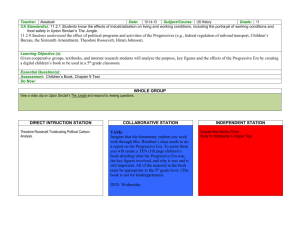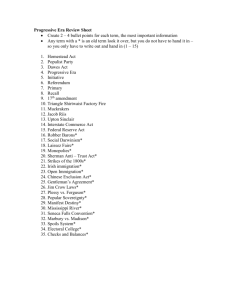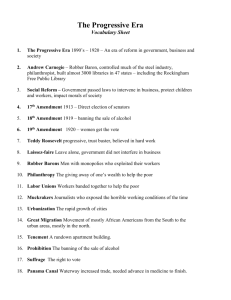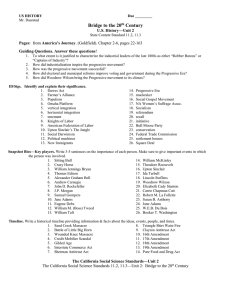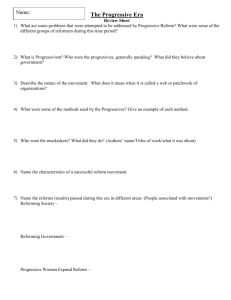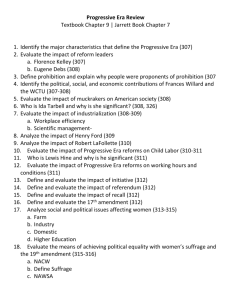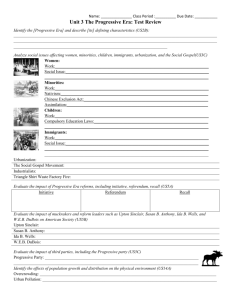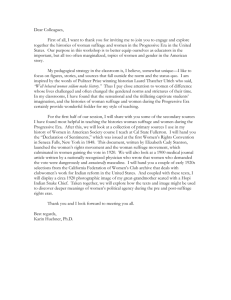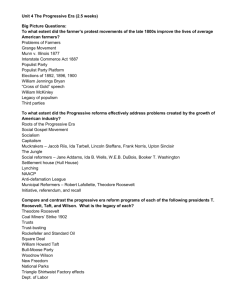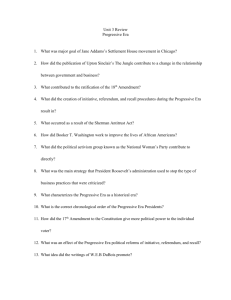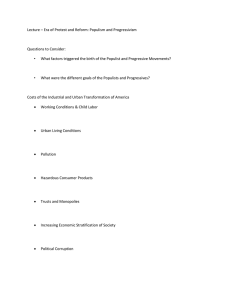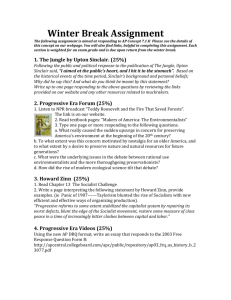Progressive Era Review 1
advertisement
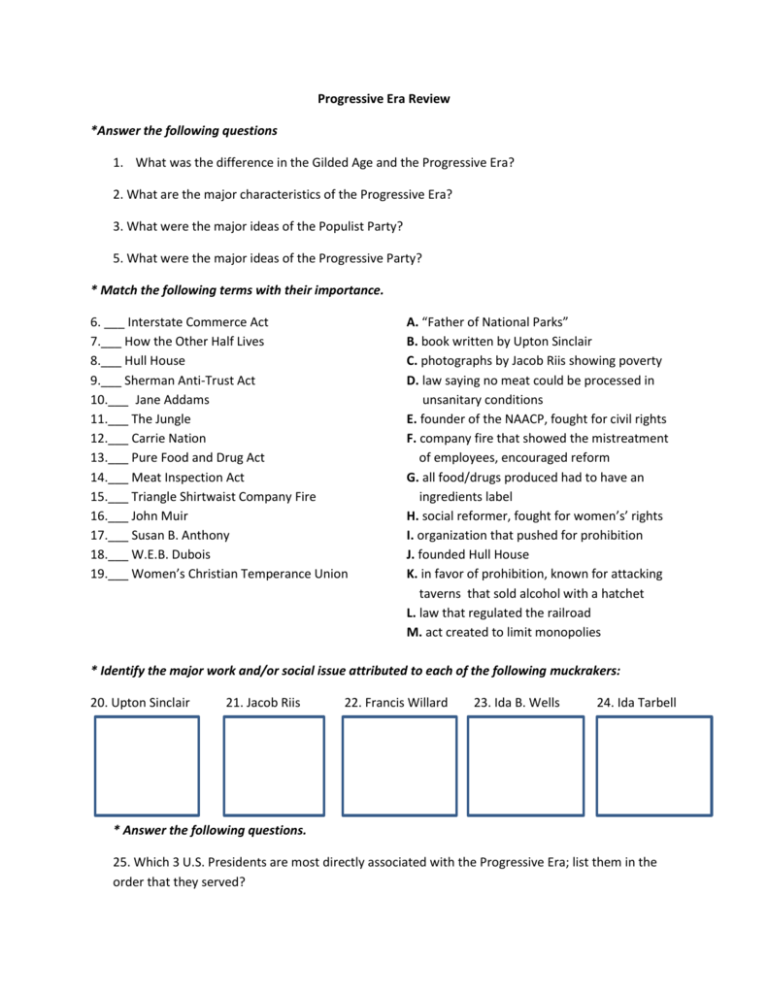
Progressive Era Review *Answer the following questions 1. What was the difference in the Gilded Age and the Progressive Era? 2. What are the major characteristics of the Progressive Era? 3. What were the major ideas of the Populist Party? 5. What were the major ideas of the Progressive Party? * Match the following terms with their importance. 6. ___ Interstate Commerce Act 7.___ How the Other Half Lives 8.___ Hull House 9.___ Sherman Anti-Trust Act 10.___ Jane Addams 11.___ The Jungle 12.___ Carrie Nation 13.___ Pure Food and Drug Act 14.___ Meat Inspection Act 15.___ Triangle Shirtwaist Company Fire 16.___ John Muir 17.___ Susan B. Anthony 18.___ W.E.B. Dubois 19.___ Women’s Christian Temperance Union A. “Father of National Parks” B. book written by Upton Sinclair C. photographs by Jacob Riis showing poverty D. law saying no meat could be processed in unsanitary conditions E. founder of the NAACP, fought for civil rights F. company fire that showed the mistreatment of employees, encouraged reform G. all food/drugs produced had to have an ingredients label H. social reformer, fought for women’s’ rights I. organization that pushed for prohibition J. founded Hull House K. in favor of prohibition, known for attacking taverns that sold alcohol with a hatchet L. law that regulated the railroad M. act created to limit monopolies * Identify the major work and/or social issue attributed to each of the following muckrakers: 20. Upton Sinclair 21. Jacob Riis 22. Francis Willard 23. Ida B. Wells 24. Ida Tarbell * Answer the following questions. 25. Which 3 U.S. Presidents are most directly associated with the Progressive Era; list them in the order that they served? 26. Describe the importance of the National Park System, and why is its creation so important as a part of our history? 27. What was the purpose of the suffrage movement? 28. What role did literature and the media play in the Progressive Era? * Match the following reforms with their correct description. 29. ___ 16th Amendment 30.___ 17th Amendment 31.___ 18th Amendment 32.___ 19th Amendment 33.___ Initiative 34.___ Referendum 35.___ Recall 36.___ Child Labor Act of 1914 37.___ Federal Reserve Act of 1913 A. prohibition B. allows people to hold election leaders accountable C. direct election of senators D. citizen’s right to introduce a new legislative measure E. women’s suffrage F. income tax G. allows people to have more influence in decision making process H. created a central banking system I. children under 14 may not be employed * True or False, if False correct the statement. 38.___ Many U.S. citizens believed in nativism, and treated immigrants unfairly. 39.___ Upton Sinclair wrote the book The Jungle; which encouraged the government to pass the Open Door Policy. 40.___The idea of eugenics was brought on by the theory of Social Darwinism; which is that only the strong will survive. 41. ___ John Muir is known as the “Father of National Parks” because of his role in helping to create the National Parks Service. 42.___ The Red Scare increased immigration especially from communist countries. 43.___Members of the Populist Party were mostly farmers that mainly opposed banks, railroads, and upper classes’ efforts, resulted in hurting African American suffrage. *Match the following words with the correct definition. 44.___ Open Door Policy A. a change to a document 45.___ Dollar Diplomacy B. policy that would allow all countries to trade with China 46.___ Domino Effect C. journalist that exposed corruption & poverty 47.___ Amendment D. improvement of the human population by controlled 48.___ Muckraker breeding to eliminate bad genes 49.___ Progressive Era E. policy of joining business interest with diplomatic interests 50.___Eugenics F. belief that countries neighboring communist countries would 51.___ Red Scare fall to communism 52.___ Antitrust Acts G. promotion of the fear of a potential rise of communism 53.___ Bull Moose Party H. political party in the U.S. founded by Roosevelt 54.___ Populist Party I. time period of social activism and political reform in the U.S. J. Third Party that was supported by disgruntled farmer
